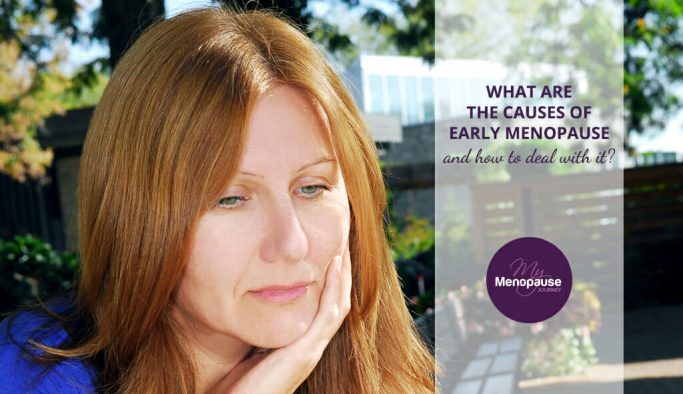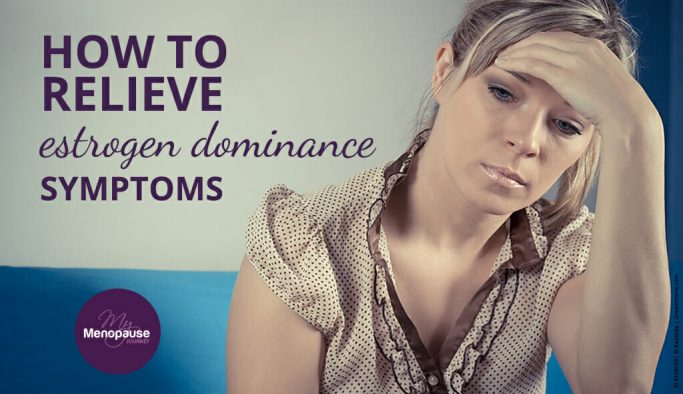Midlife can throw some unexpected challenges our way, and panic attacks are one of them. That sudden wave of anxiety, the racing heart, the breathless feeling—it can make even the simplest moments feel overwhelming. If you’ve ever felt like your body is in overdrive for no clear reason, you’re not alone.
If you’ve ever been sitting in a coffee shop or just relaxing at home when—out of nowhere—that tightness in your chest creeps in, trust me, you’re not alone. Panic attacks can hit when we least expect them, adding to the already full plate of work, family, relationships, and trying to take care of ourselves. It’s a lot—but you don’t have to navigate it alone.
So, what can we do?
In this article, let’s get that deep breath of air by tackling solutions that calm down our system. Midlife might be messy, but it can also be a time for learning, healing and finding peace from within. Let’s figure this out together!


- What Does a Panic Attack Feel Like?
- What Causes Panic Attacks in Menopause?
- Can Adrenal Fatigue Cause Panic Attacks?
- Hacks for Panic Attacks: 11 Ways to Troubleshoot Panic Mode During Menopause!
- 1. Eat nutrient-dense and hormone-balancing foods!
- 2. Try some calming and stress-busting herbs!
- 3. Boost your GABA levels!
- 4. Get enough restful sleep!
- 5. Support your adrenals!
- 6. Engage your body and mind with low-intensity exercises!
- 7. Sit back, relax, meditate!
- 8. Breathe deep with essential oils!
- 9. Try acupuncture!
- 10. Supplement with tryptophan!
- 11. Avoid smoking, excessive coffee and alcohol!
- 4 Quick Tips to Stop Panic Attacks During an Episode!
- Emotional Freedom Technique for Anxiety and Panic Attacks
- Do Panic Attacks Need Medical Attention?
What Does a Panic Attack Feel Like?
Panic attacks are sudden and overwhelming feelings of fear and anxiety. It can cause physical, emotional and psychological symptoms — such as heart palpitations, excessive sweating, shaking or trembling, chest pains, dizziness, confusion, nausea, numbness and chills.
Experiencing a panic attack during midlife often starts with a sudden rush of anxiety that grips you unexpectedly. It leaves you feeling trapped in a whirlwind of emotions!
Your heart races, pounding like a drum. Your breath shortens and feels constricted — as if there’s a weight pressing on your chest. You might find yourself feeling dizzy or lightheaded, as if the ground beneath you is shifting. The suddenness also tends to add a sense of dread and confusion, as your mind wonders what might be happening to you.
Feels like a scene from a horror movie — I know!
But before I make you feel panicky from the thought of a panic attack, let me assure you that it can be managed and prevented! (I’ve got great hacks and solutions to share further down!)
Also, it is important to note that panic attacks are different from anxiety attacks:
→ Onset: Panic attacks in menopause may be more unpredictable due to the fluctuating hormonal levels. While panic attacks, in general, can occur in response to stress or anxiety, menopause-related attacks tend to happen more frequently or unexpectedly.
→ Intensity: Due to the combination of emotional and physical stressors, the intensity of panic attacks during menopause feels more heightened.
→ Longer Duration: Some women find that panic attacks during menopause seem to last longer (and feel more intense) because of the physical and emotional triggers involved.
On the other hand, an anxiety attack usually has a gradual onset. Also, other symptoms of anxiety usually precede the episode. Unlike panic attacks, an anxiety attack is usually caused by something that can be pinpointed.
Here’s a great video from As/Is, a community with a mission to empower and inspire women! This creative video features how panic attacks feel like from real-life experiences of women:
What Causes Panic Attacks in Menopause?
Panic attacks in menopause are usually triggered by fluctuating estrogen and progesterone levels. These hormones are known to work together for mood regulation. So, declining levels can make us more susceptible to stress, anxiety, depression, brain fog, sleep problems and fatigue! These can all escalate into panic attacks, especially when emotions get too overwhelming.
For some women, menopause symptoms, like hot flashes, nights sweats and weight problems, may also trigger social anxiety and contribute to panic attacks. Undoubtedly, hormonal imbalances and the symptoms they cause are truly at the root of panic attacks in menopause!
Not to mention that as we age, we also experience major life changes — such as children leaving home or parents becoming older. Without taking some time to pause and process these life transitions, they can cause emotional distress and result in panic attacks.
For mental health experts, it is believed that high levels of cortisol (stress hormones) and epinephrine (also known as “adrenaline”) activate a persistent stress cycle. Meaning, when our stress levels are constantly elevated, we tend to experience an increased heart rate, heavier breathing, excessive sweating and high blood pressure — which can all lead to panic attack episodes.
Can panic attacks be triggered by non-hormonal reasons, too?
Yes, especially during situations when emotions seem to flood you all at once. In some cases, panic attacks could also be due to diet and lifestyle factors! The following are other common triggers of panic attacks besides hormonal fluctuations:
- Social obligations, outings and events
- Stress related to finances, relationships or legal issues
- Situations that remind of traumatic events
- Conflicts at work and professional matters
- Certain foods and nutrient deficiencies
- Substance abuse
- Certain medications with side effects
- Mental and physical health conditions
“Anxiety is a lot like a toddler. It never stops talking, tells you you’re wrong about everything and wakes you up at 3 am.”
Can Adrenal Fatigue Cause Panic Attacks?
Adrenal fatigue can lead to a range of symptoms, including panic attacks. Normally, the adrenal glands are responsible for producing the fight-or-flight hormones cortisol and adrenaline. But with constant stress, the adrenals may become depleted — leading to extremely low levels of the said hormones. As a result, you may experience fatigue, sleep deprivation, mood swings and other symptoms — which, in turn, lead to panic attacks when left unmanaged.
Although in some cases, adrenal fatigue could lead to more depressive and less panicky symptoms. It can manifest as feelings of being demotivated, having low energy levels, muscle weakness, difficulty focusing and a general sense of feeling empty.
What are adrenal glands anyway? Well, if you didn’t know already, the adrenal glands are tiny organs that sit on top of your kidneys. Despite their small size, they are one of the most helpful organs in the body!
Your adrenals regulate stress hormones — such as cortisol, adrenaline and epinephrine. These hormones tell your body when and how to react to stress! They also send signals to your brain when your stressor has been resolved and if it’s time to calm down and relax.
So, if your adrenals are poorly functioning, your brain will not likely get those “memos” and keep staying on high alert! The good thing is, we can always find ways to support our adrenals. Discover how in the next section!
Hacks for Panic Attacks: 11 Ways to Troubleshoot Panic Mode During Menopause!
You’ll probably find from many studies and resources that identifying your triggers should always come first. And while I find some truth in that, it may not be the easiest initial step for someone dealing with panic attacks in menopause.
We are not just having panic attacks, you know? We are also in menopause — dealing with all the hormonal rollercoaster and circus of symptoms!
So, it would be best that you first find ways to restore hormonal balance and stabilize your emotional well-being. Once you do, that would be the time to sit with yourself and identify what’s triggering all the panic!
The following are some diet and lifestyle hacks you can do to prevent and manage panic attacks during menopause:
1. Eat nutrient-dense and hormone-balancing foods!
Have a nutrient-dense plate filled with good proteins, low-carb foods, healthy fats and veggies. This will support hormonal function, as well as many other aspects of your health in midlife!
Healthy fats and antioxidant-rich foods are particularly great for regulating stress. My go-to are veggies, fish, shellfish, avocado, nuts, seeds, berries, beans, legumes, herbs (adaptogenic herbs and phytoestrogenic herbs) and spices!
2. Try some calming and stress-busting herbs!
Herbs such as Ashwagandha, Brahmi, passionflower, chamomile, valerian root and St. John’s Wort are known for their calming effects on the mind and body. These herbs have anti-stress properties that induce feelings of relaxation!
3. Boost your GABA levels!
Gamma-aminobutyric acid is so beneficial for your emotional and mental well-being. Not only does it reduce stress levels and boost your mood — it also promotes better sleep quality!
Vitamin B6 and magnesium-rich foods are nutrients known to synthesize GABA. Foods like wild-caught fish, grass-fed meat, leafy veggies, whole grains, berries, citrus fruits, green tea and black tea are rich sources of them!
Discover more ways to boost GABA levels naturally in my article below!
4. Get enough restful sleep!
Good restorative sleep helps regulate your mood, keeps your stress hormones in check and ensures your brain has the resources it needs to tackle daily challenges. So, try to get at least 8 hours every night! Snuggle up, count those sheep and let sweet dreams be your ally in keeping panic at bay!
5. Support your adrenals!
To keep your adrenals working optimally, try to do only light exercises — gentle movements are enough to increase blood flow to your adrenals. Also, take a step back, go slow on your daily to-do and spend some more me-time!
For your nutrients, eat more iodine, selenium, zinc, vitamin D and vitamin B12-rich foods. These nutrients are great mood-boosters, hormone-balancers and antioxidants!
6. Engage your body and mind with low-intensity exercises!
Exercising generally boosts the production of our happy hormones (such as serotonin and endorphins), but if you’re already feeling stressed, it’s best to go for more relaxing movements!
Go for walks, Pilates, yoga and any activity that you enjoy. If you have a desk job or sit a lot in a day, take short breaks, stretch and let your blood circulate; it’s beneficial both for the mind and body!
7. Sit back, relax, meditate!
When life feels like a rollercoaster, meditation helps you hit the brakes and take a deep breath. It trains your mind to be as calm as a cat in a sunbeam, turning down the volume on anxious thoughts that can lead to panic attacks! Just a few minutes of mindfulness can reset your mental state — helping you to ride the waves of stress without wiping out!
8. Breathe deep with essential oils!
Essential oils such as lavender, bergamot, sandalwood, chamomile and rose geranium are besties for relaxation and mood regulation. They have soothing and muscle-relaxing effects that can calm your mind and body! Simply carry a small bottle of your favorite essential oil, apply some on your hands and breathe in!
9. Try acupuncture!
This ancient healing technique helps you calm down by targeting energy points. Acupuncture also has a sedative effect on your central nervous system — making you feel more relaxed and focused! And yes, you already know it involves needles, but it doesn’t hurt! It’s just a sweet little sting.
10. Supplement with tryptophan!
Like GABA, tryptophan is an essential amino acid that helps in the production of serotonin — a happy hormone that regulates mood. The soothing effects of serotonin may also help manage and prevent episodes of panic attacks!
11. Avoid smoking, excessive coffee and alcohol!
Chemicals, such as nicotine, caffeine and alcohol, are all known to trigger and worsen panic attacks. Ditching these troublemakers isn’t just about saying “no” to vices; it’s about saying “yes” to a calmer, brighter you. You are helping your body stay in sync and reduce those panic-induced fireworks!
4 Quick Tips to Stop Panic Attacks During an Episode!
If you’re already in an episode, practicing breathing techniques, positive self-talk, mindfulness and mental reframing are some of the quick ways to stop panic attacks. These quick tips may seem too simple, but they are what mental health professionals actually recommend!
Breathe. One thing you can do to calm down is to breathe deeply. Concentrate and focus on really slow and deep breaths. Inhale with your nose, expand your diaphragm, hold for a few seconds and breathe out with your mouth. Let go of the tension and relax your body.
Use positive self-talk. Coping statements or positive affirmations are among the best ways to ease panic attacks. Your brain believes what you tell it — even if sometimes, you don’t have to mean it! Some of the lines you can use are:
- “I’ll be fine.”
- “I’ve been here before and I was safe”
- “This will pass.”
Acknowledge how you feel. Sometimes, it’s best not to fight a panic attack. Instead of resisting the feelings of dread, acknowledge your feelings, feel (and breathe deep while you do!) and just let them pass. For example, if you’re driving and feel a sense of worry, stop by the side of the road and take a deep breath. Be accepting, but don’t let your worries get to you. Doing this is like depriving the panic of what it feeds on — fear and worry!
Think of the end. Experts say a panic attack only lasts for a few minutes to an hour. It can vary, of course, but you can use this knowledge and “look forward” to the end of an episode. Knowing that there’s an end to how you’re feeling reassures you that everything will turn out fine!
In this video, Rebekah Borucki shares her personal solution to calm herself during a panic attack! Give her remedies a try and who knows? They might just work perfectly for you, too!
Emotional Freedom Technique for Anxiety and Panic Attacks
Emotional Freedom Technique (EFT) is an alternative treatment method used to reduce symptoms of stress, anxiety, post-traumatic stress disorder (PTSD) and depression. It is a self-help therapy with over 100 studies proving its efficacy. EFT mainly involves stimulation of acupressure points through tapping, applying pressure and rubbing.
EFT is a great way to relax and calm your mind! It is designed to calm the central nervous system. It also regulates the system’s reaction to stressors — helping you manage a panic attack!
There’s no ideal way to do EFT, but some start with positive self-talk before tapping into their energy points. Others tap their energy points without any affirmations. Either way, many women who experience panic attacks find EFT useful and effective!
Did you know that we have 9 different energy points in the body? Here’s Jessica Ortner showing the nine tapping points and some positive affirmations you can use while doing EFT!
Do Panic Attacks Need Medical Attention?
In some cases, panic attacks need medical attention. Conventional medicine uses a combination of cognitive-behavioral therapy (CBT) and medications for panic attacks. CBT helps identify thinking patterns and behaviors which trigger your panic attacks.
There are three components to CBT, called the three Rs!
- Relabeling teaches you how to accept frightening situations.
- Relaxation makes use of proper diaphragmatic breathing.
- Repeat Exposure is when a therapist gradually exposes you to panic triggers until you can cope with them.
CBT, in combination with certain medications, can help ease panic attacks. Examples of medications used are serotonin boosters, antidepressants, anticonvulsants and mild tranquilizers.
However, the use of medications usually comes with side effects. Work with a healthcare professional who takes into account the real underlying causes of your panic attacks!
References:
menopausecentre.com.au/information-centre/symptoms/panic-disorder/
news-medical.net/health/Panic-Attacks-During-Menopause.aspx
health.clevelandclinic.org/2016/05/can-menopause-cause-your-anxiety-or-panic-attacks/
southcoastcounselorsandphysicians.com/panic-attack-triggers/
my.clevelandclinic.org/health/diseases/4451-panic-disorder
avogel.co.uk/health/menopause/symptoms/panic-attacks/
sciencedirect.com/science/article/abs/pii/S0006322311005634
betterhelp.com/advice/anxiety/what-is-the-difference-between-anxiety-attack-vs-panic-attack/?network=g&placement=&target=&matchtype=b&ad_type=text&adposition=
drbeckycampbell.com/top-two-underlying-causes-anxiety/
ncbi.nlm.nih.gov/pmc/articles/PMC6381429/
pmc.ncbi.nlm.nih.gov/articles/PMC4732315/
msdmanuals.com/professional/psychiatric-disorders/anxiety-and-stressor-related-disorders/panic-attacks-and-panic-disorder
👉 What to Do Next
Don’t go just yet — especially if you’ve been feeling off and no one’s given you real answers.
Go to the START HERE page.
It’s where things begin to feel clearer. No more second-guessing, no more sorting through conflicting advice. Just calm, honest support for where you are right now.
And if you haven’t yet, download the FREE GUIDE.
It’s quick, clear, and made to help you feel better — without having to turn your whole life upside down.


Gita is the founder of My Menopause Journey. Since 2014, she has been supporting midlife women by sharing hard-earned learnings from her own experience. To advance her knowledge, Gita puts a lot of her time and effort into understanding the broad spectrum of women’s health. She immerses in extensive research about the physical, mental and emotional aspects of menopause. Gita believes in the life-changing power of healthy, holistic living — this is where she anchors her message to all women. Learn more about her marvelous mission in About us - My Menopause Journey.






